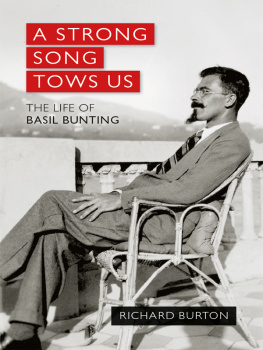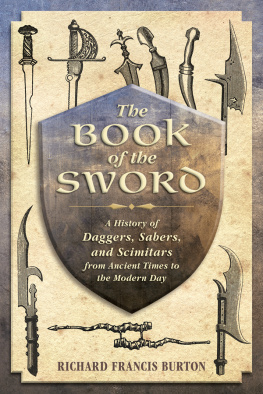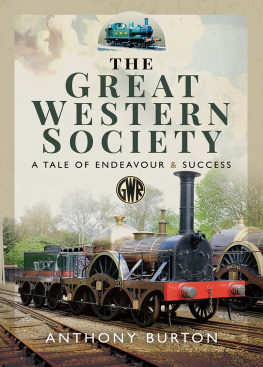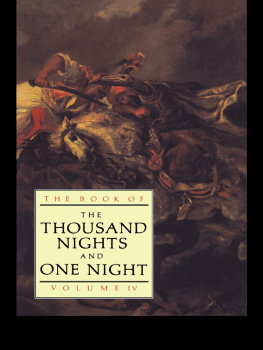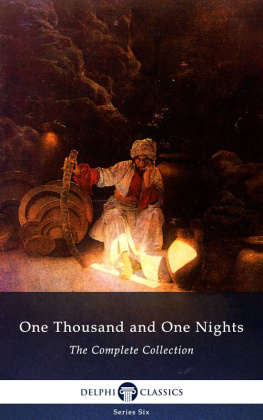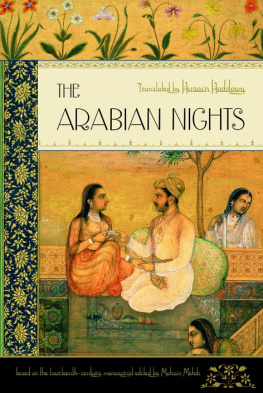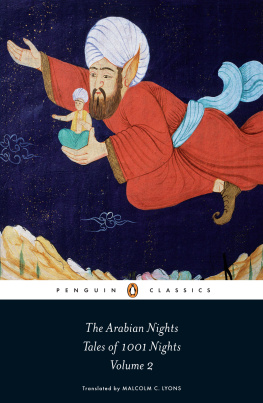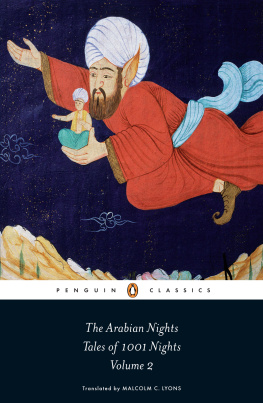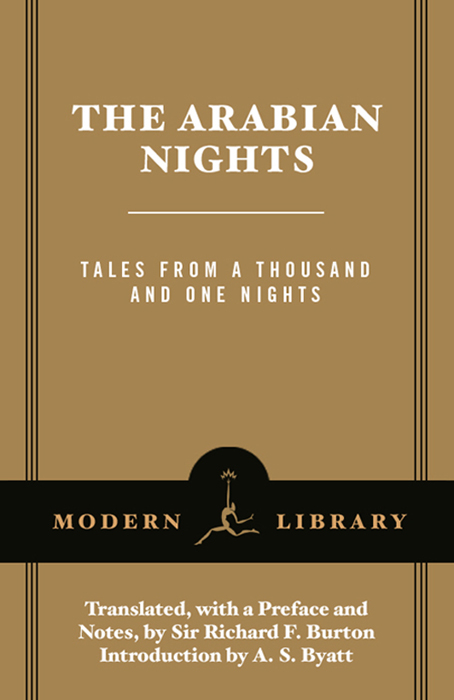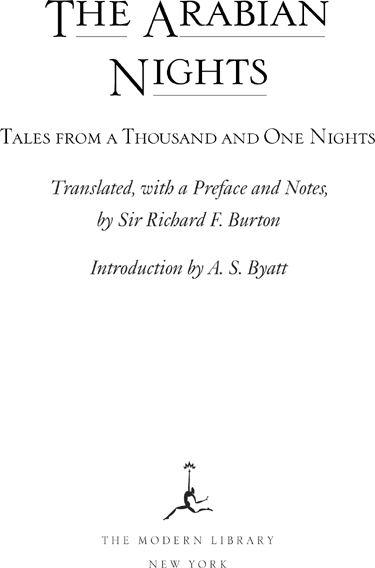R ICHARD F. B URTON
Richard Francis Burton, the Victorian explorer, linguist, and writer best remembered today for his translation of The Arabian Nights, was born in Torquay, Devon, on March 19, 1821. Descended from prosperous provincial gentry, he experienced an exotic and nomadic childhood. In 1822 Burtons father, a onetime lieutenant colonel in the British army, moved the family to Beausjour, a small chteau in the Loire valley. During the 1830s they wandered throughout France and Italy, returning to England for short visits. As a child Burton displayed his talent for languages, and was fluent in Greek and Latin as well as Italian and French before entering Trinity College, Oxford, in 1840 to prepare for a career in the Anglican church. He was expelled in 1842 for misbehavior and sailed to India with a commission in the Bombay Army, a military branch of the East India Company.
Burton spent the next seven years in the northern province of Sind as a field surveyor and intelligence officer, often disguising himself as a Muslim merchant. He mastered a dozen Oriental languages, including Arabic, Hindustani, and numerous other Indian languages, and absorbed everything he could about Indian culture.
In 1850 he left India for Boulogne, France, where he wrote three books about his experiences in India that endure as compelling contributions to ethnology: Goa, and the Blue Mountains; Scinde, or, The Unhappy Valley; and Sindh, and the Races that Inhabit the Valley of the Indus.
In 1853, disguised as an Afghani physician, he traveled to Medina and Mecca where he visited and sketched at great risk the sacred shrines of Islam forbidden to non-Muslims. Personal Narrative of a Pilgrimage to El-Medinah and Mecca (18551856), an encyclopedic look at the Islamic world, is widely considered his most important travelogue.
Though this book brought him acclaim in England, Burton then set off on an expedition through Ethiopia and Somaliland to the forbidden city of Harer, the citadel of Muslim learning; he was the first European to enter and leave the city without being executed. First Footsteps in East Africa (1856) records this adventure. Following a brief tour of duty in the Crimean War, Burton and John Speke set out from Zanzibar in 1857 in an attempt to locate the source of the Nile. The Lake Regions of Central Africa (1860) chronicles the two-year expedition that resulted in the discovery of Lake Tanganyika.
In 1860 he traveled across the United States to Salt Lake City. The City of the Saints (1861) describes the Mormon Church and offers a portrait of its leader, Brigham Young.
In 1861 Burton married Isabel Arundell, a devout Roman Catholic, and joined the British Foreign Office. Assigned to a minor consular post in Fernando Po, a desolate island off the coast of present-day Cameroon, he studied the ethnology of native tribes and accumulated notes for four books: Wanderings in West Africa (1863), Abeokuta and the Cameroons Mountains (1863), A Mission to Gelele, King of Dahome (1864), and Two Trips to Gorilla Land and the Cataracts of the Congo (1876). While on subsequent diplomatic assignments in So Paulo, Brazil (18641869), and Damascus, Syria (18691871), he wrote The Highlands of Brazil (1869), Letters from the Battle-fields of Paraguay (1870), and Unexplored Syria (1871).
Burton spent his final years in the quiet consulship at Trieste, Italy. Bored by official duties, he indulged in two final adventures: gold-mining expeditions to Egypt (18761880) and West Africa (18811882) that resulted in The Gold Mines of Midian (1878) and To the Gold Coast for Gold (1883). During this time he also wrote The Kasdah (1880), an elegiac poem fashioned after The Rubiyt of Omar Khayym. In addition he translated Latin poems by Catullus; several works of Italian literature; and two classics of Indian erotica, the Kama Sutra of Vatsyayana (1883) and the Ananga Ranga (1885); as well as an Arabian treatise on sexuality, The Perfumed Garden of Cheikh Nefzaoui (1886).
In 1884 Burton began to rework and organize his translation of The Arabian Nights, a project undertaken in India some three decades earlier. Published in sixteen volumes over the next three years, it was both a critical and financial success. The Arabian Nights is more generally loved than Shakespeare, wrote Robert Louis Stevenson. No human face or voice greets us among [this] crowd of kings and genies, sorcerers and beggarmen. Adventure, on the most naked terms, furnishes forth the entertainment and is found enough. In 1886 Burton received a knighthood, an honor many considered long overdue, and two years later he brought out Supplemental Nights, a continuation of his masterpiece.
Captain Sir Richard Burton died in Trieste on October 20, 1890. Alarmed by the sexually explicit content of her husbands papers, Isabel Burton burned almost all of his notes, diaries, and manuscripts an immeasurable loss to history. Only a handful of Burtons works appeared posthumously, notably The Jew, the Gypsy, and El Islam (1898) and Wanderings in Three Continents (1901).
C ONTENTS
A. The Tale of the Bull and the Ass
(Burton, vol. 1, p. 2)
A. The Tale of the Ensorcelled Prince
(Burton, vol. 1, p. 38)
E. Tale of the Portress
(Burton, vol. 1, p. 82)
3. T HE T ALE OF THE T HREE A PPLES
(Burton, vol. 1, p. 186)
4. T ALE OF N UR AL -D IN A LI AND H IS S ON B ADR AL -D IN H ASAN
(Burton, vol. 1, p. 195)
B. Tale of the Second Eunuch, Kafur
(Burton, vol. 2, p. 45)
6. T HE T ALE OF THE B IRDS AND B EASTS AND THE C ARPENTER
(Burton, vol. 3, p. 114)
7. T HE H ERMITS
(Burton, vol. 3, p. 125)
8. T HE T ALE OF K AMAR AL -Z AMAN
(Burton, vol. 3, p. 212)
9. H ATIM OF THE T RIBE OF T AYY
(Burton, vol. 4, p. 94)
10. T HE T ALE OF M AAN S ON OF Z AIDAH AND THE B ADAWI
(Burton, vol. 4, p. 97)
11. T HE C ITY OF M ANY -C OLUMNED I RAM AND A BDULLAH S ON OF A BI K ALIBAH
(Burton, vol. 4, p. 113)
12. T HE S WEEP AND THE N OBLE L ADY
(Burton, vol. 4, p. 125)
13. A LI THE P ERSIAN
(Burton, vol. 4, p. 149)
14. T HE M AN W HO S TOLE THE D ISH OF G OLD W HEREIN THE D OG A TE
(Burton, vol. 4, p. 265)
15. T HE R UINED M AN W HO B ECAME R ICH A GAIN T HROUGH A D REAM
(Burton, vol. 4, p. 289)
16. T HE E BONY H ORSE
(Burton, vol. 5, p. 1)
17. H OW A BU H ASAN B RAKE W IND
(Burton, vol. 5, p. 135)
18. T HE A NGEL OF D EATH WITH THE P ROUD K ING AND THE D EVOUT M AN
(Burton, vol. 5, p. 246)
G. The Seventh Voyage of Sindbad the Seaman
(Burton, vol. 6, p. 1)
20. T HE C ITY OF B RASS
(Burton, vol. 6, p. 83)
21. T HE L ADY AND H ER F IVE S UITORS
(Burton, vol. 6, p. 172)
22. J UDAR AND H IS B RETHREN
(Burton, vol. 6, p. 213)
23. J ULNAR THE S EA -B ORN AND H ER S ON K ING B ADR B ASIM OF P ERSIA
(Burton, vol. 7, p. 264)
24. KHALIFAH THE FISHERMAN OF BAGHDAD
(Burton, vol. 8, p. 145)
25. A BU K IR THE D YER AND A BU S IR THE B ARBER




